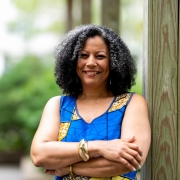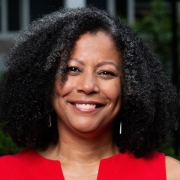The Metropolitan Center for Research on Equity and the Transformation of Schools is delighted to be the recipient of a Vision Grant. This $75,000 new study grant from the Spencer Foundation is awarded to teams that will work collaboratively to develop ambitious, large-scale research projects focused on transforming educational systems toward greater equity.
The award-winning research project titled, Partnering for equity: A trauma informed community-research collaborative to improve youth outcomes, will address the impact of trauma on school performance in southeast Queens, NY. To execute this ground-breaking research initiative NYU Metro Center will partner with two other distinguished Institutes and research centers. The Metropolitan Center for Research on Equity and the Transformation of Schools will collaborate with both the McSilver Institute for Poverty Policy and Research and The Research Alliance for New York City Schools. When asked for comment on this collaboration, NYU Metro Center Executive Director, Fabienne Doucet said,

We … are thrilled for the opportunity to collaborate with such wonderful colleagues to bring the power of research to bear on addressing such critical issues impacting our most vulnerable communities.”
In addition to the overarching partnership between NYU Centers and Institutes, this work will also be done in concert with members of the New York City Council, including local Council Member Nantasha Williams (Council District 27), Chair of the NYC Council Committee on Civil and Human Rights. When speaking of the importance of the Spencer Foundation Vision Grant, Council Member Williams said the ” …grant is an opportunity to develop solutions and lay a foundation of equitable access to services, guaranteeing a future where all children can thrive academically and emotionally.”
The Spencer Foundation, a leading funder of education research, invests in methodologically rigorous education research that broadens diversity of scholarship and improves educational practice. The rationale behind the Vision Grant award is that transformative education research requires time, space, and thoughtfulness to incubate and plan. The Vision Grant award successfully funds the development of ideas and practices that benefit the public good. The Spencer Foundation’s Vision Grant also facilitates high-quality research by fostering partnerships and collaborations amongst schools, districts, community-based organizations, higher education institutions, and parent coalitions through the co-design of their respective projects.
When asked to describe the auspices of this research initiative, Dr. Fabienne Doucet explained,

“We look forward to engaging with impacted community members and policymakers to leverage their expertise, strength, and resilience as we work toward making access to resources more equitable.”
This initiative will focus on communities in Southeast Queens, which saw disproportionate effects of the COVID-19 pandemic, including alarming rates of infection and loss of life. The project will focus its efforts on elementary and middle schools in the area, which grapple with significant race and gender disparities compounded by factors such as poverty, violence, educational achievement, and underemployment. Additionally, the initiative will address the enduring impacts of COVID-19 in a multicultural neighborhood characterized by a blend of long-standing, racially diverse residents, and recent migrants and asylum seekers.
Following the initial year-long planning period funded by the grant, the next phase will be the application for a comprehensive five-year research study that will do the substantive research leading to concrete, data-driven, and applicable ways to improve the lives of youth in some of the most vulnerable communities.
NYU Metro Center is proud to partner with the McSilver Institute for Poverty Policy and Research and The Research Alliance for New York City Schools to conduct innovative research that takes critical steps to dismantle the systemic barriers that perpetuate educational disparities in communities of color.

